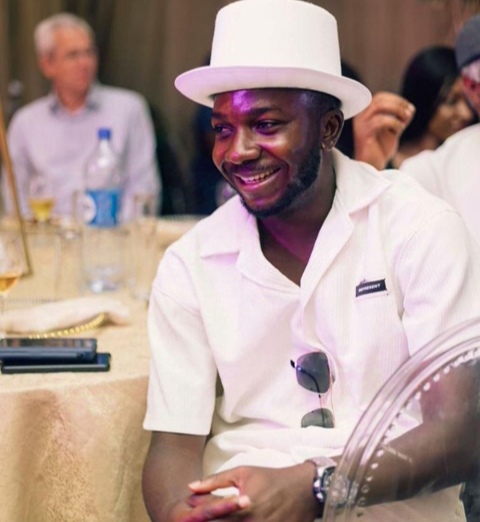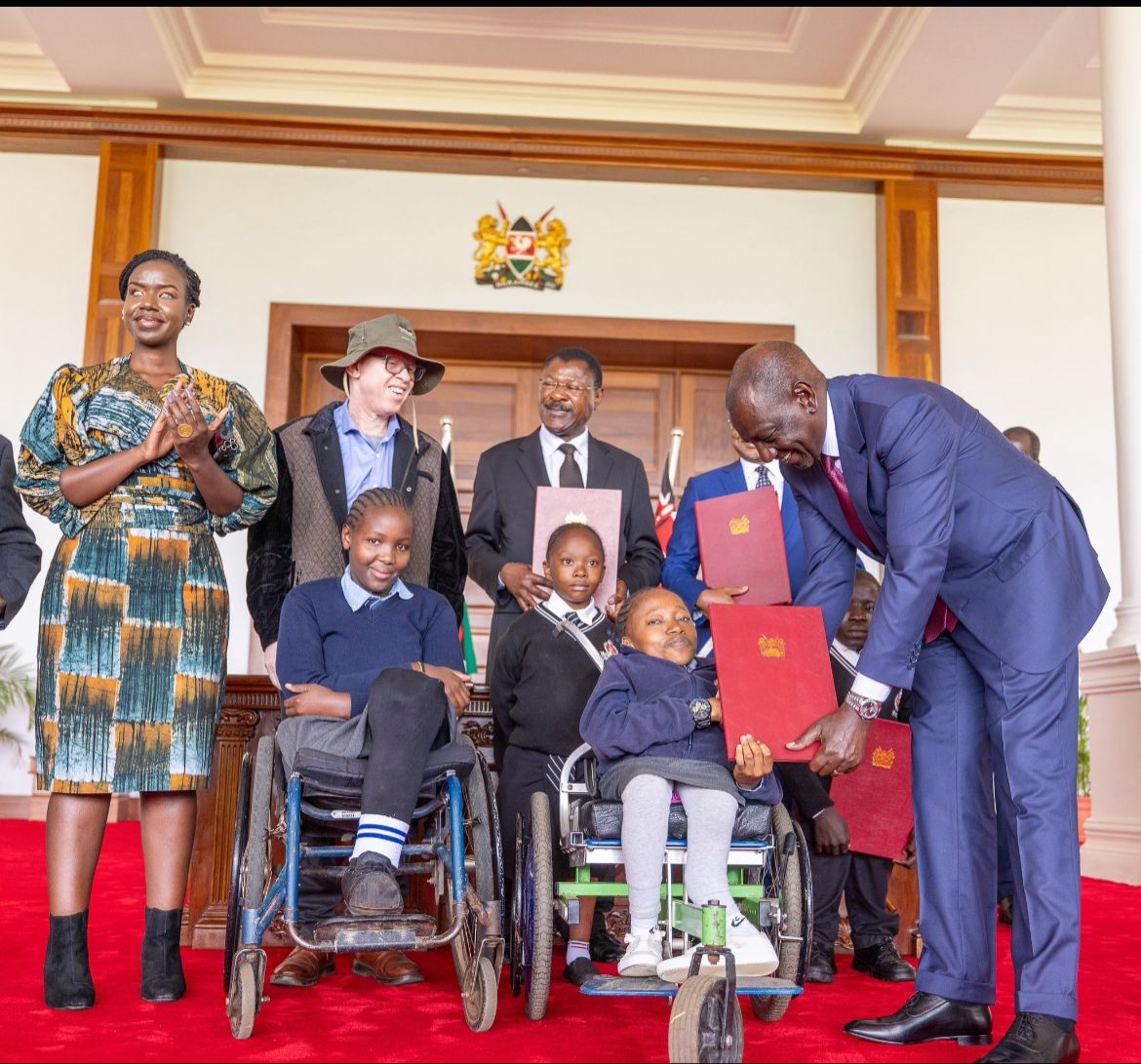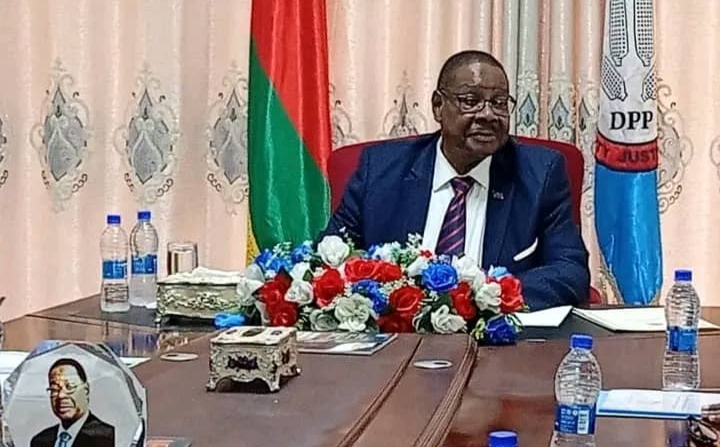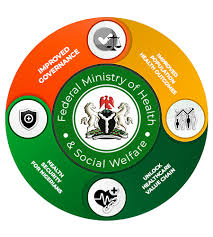SOUTH SUDAN: Embroidered Bedsheets: A Symbol Of South Sudan’s Rich Cultural Heritage
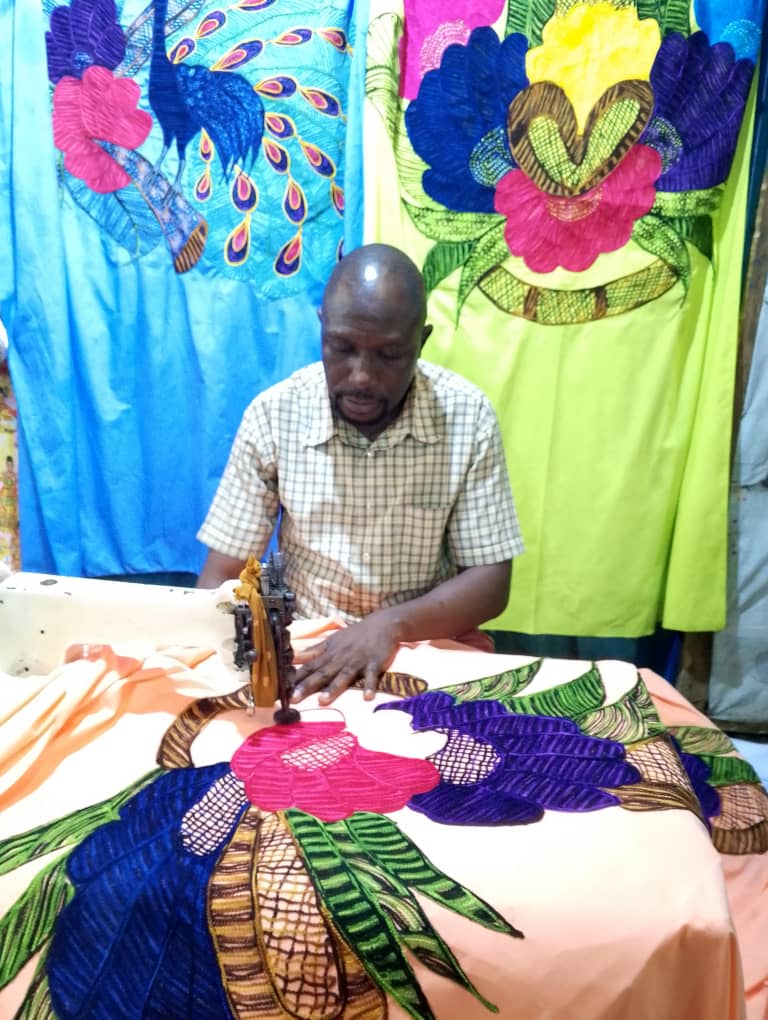
By Debora Akur chol – South Sudan .
In the heart of South Sudan, a cultural renaissance is unfolding through the intricate art of embroidered bedsheets. This tradition, deeply rooted in the region’s rich cultural heritage, is not only adding beauty to everyday life, but also serving as a symbol of resilience and identity in the post-conflict nation.
Embroidered bedsheets are much more than just bedding. For many South Sudanese families, they are an essential part of life, reflecting personal stories, family history, and ethnic pride.
The process of hand-embroidering these sheets is a time-honored craft that has been passed down through generations. Today, it is experiencing a revival, as artisans blend traditional designs with contemporary aesthetics to meet the growing demand both locally and internationally.
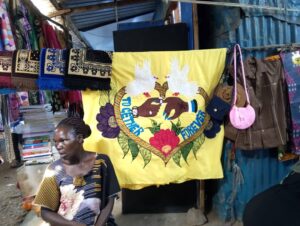
Historically, embroidery in South Sudan was predominantly used in clothing, with women’s dresses and accessories often adorned with colorful patterns and symbols that conveyed status wealth, and regional identity, like among the Dinka people where it is customary for a newly wed lady to carry the bedsheets to her husband house.
However, with the rise of modernity and the challenges of war, many traditional practices faded into the background. Over the past few years, a growing appreciation for these cultural symbols has led to a resurgence in embroidered textiles, particularly bedsheets, as the community seeks to reconnect with its roots.
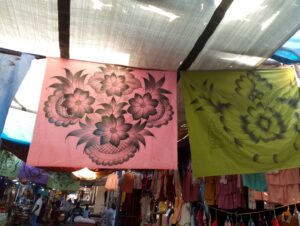
Women are now stitching intricate motifs into bedsheets, using vibrant threads to create designs inspired by South Sudan’s natural landscapes, wildlife, and cultural symbols.
These include geometric patterns and representations of the national flag, as well as depictions of the country’s most iconic animals like the rhinoceros, lion, and giraffe.
The bedsheets often feature motifs that reflect tribal unity, peace, and harmony, making them a powerful tool for cultural preservation like among the shiluk where women makes colourful bedsheets to be worn be their men with traditional beads.
The rise of embroidered bedsheets is not only a cultural revival, but also a growing source of income for many women in South Sudan. In rural areas where employment opportunities are scarce, women are using their skills to produce these beautiful textiles which are then sold at local markets or exported to international buyers. By doing so, they are not only preserving their traditions but also gaining financial independence and contributing to the nation’s economic recovery.
Sister joyce, a local artisan who works in konyokonyo market, shared with African Culture TV how embroidery has changed her life.
She said: “I have been embroidering for over 15 years. It was something I learned from my mother. Today, I can sell my work, and it helps me support my family. It feels empowering to know that through my art, I am not just creating beautiful products, but also keeping our culture alive.”
Local businesses and entrepreneurs are also getting involved in promoting embroidered bedsheets. Several boutiques in Juba have started showcasing these creations, and demand is steadily increasing from both local and international buyers who appreciate the cultural significance and unique craftsmanship behind each piece.
The embroidered bedsheets serve as a reflection of South Sudan’s journey and aspirations. For a country that has faced years of civil war and political instability, these textiles are a tangible reminder of hope, unity, and the promise of a brighter future. The vibrant patterns and symbols on the bedsheets often incorporate elements of the South Sudanese identity, blending diverse ethnic influences to showcase the nation’s pluralistic culture.
Mama Grace who owns a shop in konyokonyo market where women learn to embroide with machines, said: “These embroidered sheets are not just decorations.
“They carry deep meanings. They tell stories of people’s lives, their struggles, and their hopes. Each stitch is a way of preserving memories, of resisting cultural erosion, and of asserting pride in South Sudan’s diverse heritage.”
The future of embroidered bedsheets in South Sudan looks promising. As both a symbol of cultural identity and a growing industry, this craft has the potential to be a driving force in both economic development and social cohesion. Local artisans are increasingly embracing modern techniques while staying true to traditional craftsmanship, and it is this blend of old and new that makes these embroidered textiles so special.
The continued success of embroidered bedsheets in South Sudan is a testament to the resilience of its people and their unwavering commitment to celebrating and preserving their cultural heritage, one stitch at a time.
categories
recent posts
